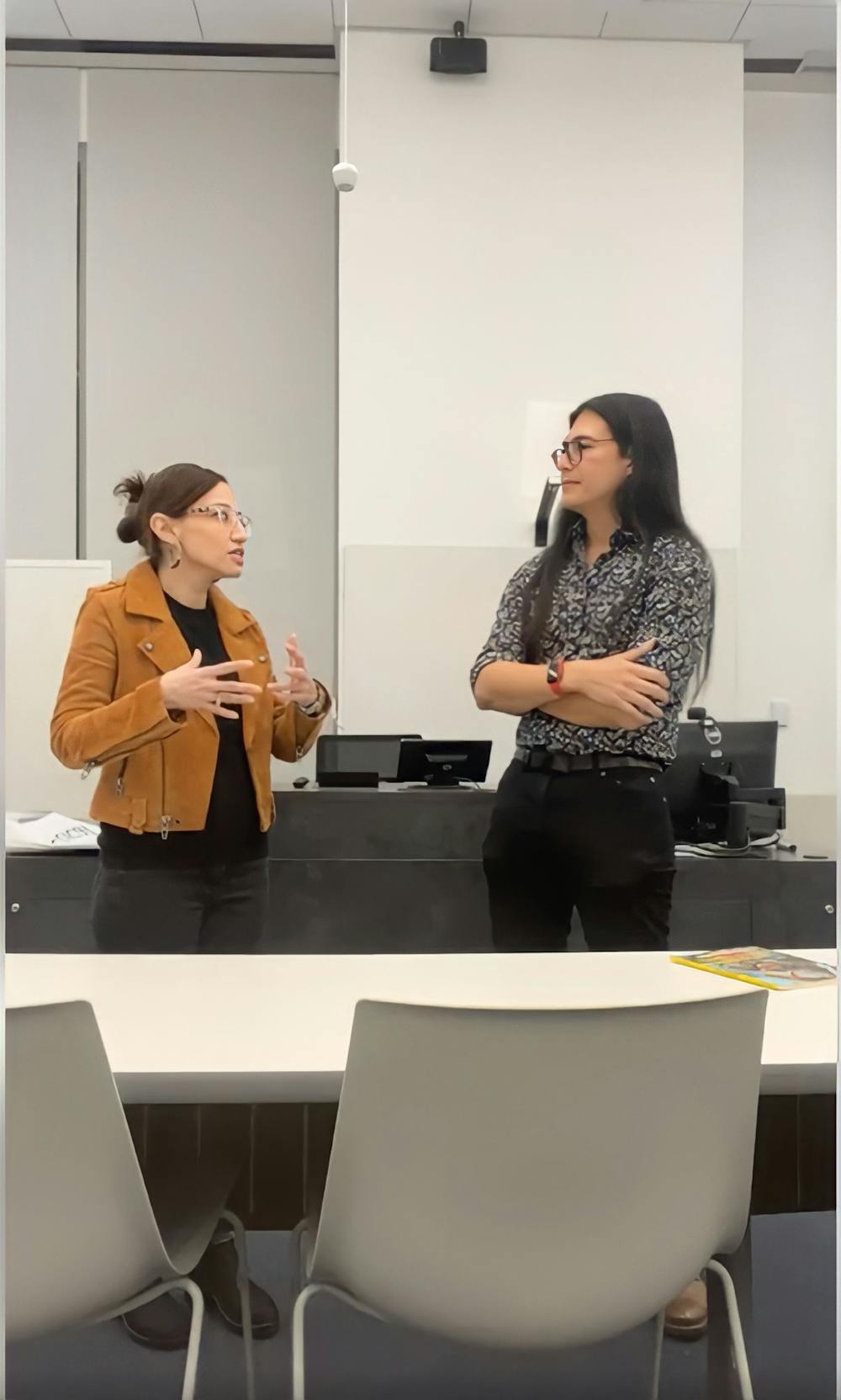Poets explore intersectional identities

On Nov. 18, The Department of Modern and Classical Studies hosted a poetry reading with two award-winning writers: multi-genre writer Leslie Contreras Schwartz (’02) and poet Benjamin Garcia. Having known Schwartz when she was a Rice student, Rice English and Latin American Studies professor José Aranda Jr. invited her, and then she invited her colleague Garcia.
“There’s a growing Latinx cadre of writers and poets,” said Aranda. “People should know Houston is a world magnet for nurturing local Latinx writers and poets and for drawing them into Houston.”
Both poets grew up in Houston, and Schwartz was the Houston Poet Laureate from 2019 to 2021. Currently, Schwartz and Garcia teach at the low-residency MFA program at Alma College in Michigan.
Both writers selected poetry that explored different perspectives around race, gender, sexuality and social class centering on Latinx identities. Through her poems, Schwartz is able to explore intersectional aspects of her identity, including themes of misogynistic violence specific to the Latinx community.
“Latinx are not a monolith, and trying to be as specific as possible is how I try to be true to my story,” said Schwartz. “I wanted to capture authentic experiences in my community and from my own lived experiences, which can look differently than the North American or European white experience.”
Schwartz’s poetry uses nonlinear narratives and form to reflect the real experiences of her poetry’s narrators. Akin to visual art, poetry is a medium through which she can express ideas in ways inaccessible through discourse or prose.
“I see myself as a multi-genre writer,” Schwartz said. “A lot of what I write is genre-fluid, and my work is pigeonholed [by publishers] into different categories that are not necessarily true to the work that I’m doing.”
Among the pieces Schwartz read, her poems “Shame, Documented” and “an object the girl an object,” are both composed of fractured lines that explore what it means to be deprived of bodily agency.
“[‘Shame, Documented’] is based on documentation from undocumented people who were detained and first-person accounts of what happened to them. So most of this poem is made from quotations,” said Schwartz.
In poems like “The Language in Question” and “The Great Glass Closet,” Garcia also explores the language surrounding bodily agency in the intersectional aspects of being LGBTQ+ and Latinx.
“Moving through the world as a queer, brown person, I can’t not think about my identities,” said Garcia. “Even when I’m writing about something that’s on the surface not about queerness or Latinx identity, sometimes that comes through.”
Part of that de-stigmatization comes down to giving himself permission to write what he gravitates towards, Garcia explained, rather than what is publishable. This includes bringing in humor and choosing not to censor language if it serves the intention of his poem.
For both poets, their work breaks from Western canon even while writing within its languages. For Garcia, it’s important to recognize the colonial history of both the Spanish and English languages while also using them to push back against that history and narrative.
“I can appreciate the beauty of English poetry and of people writing in different eras that wouldn’t have welcomed me. But there’s also the fact that I am writing right now,” said Garcia. “How can I use this tool that was once used as a tool of oppression to place myself, to give myself a map of where I am and how I got here and find other people to connect with?”
Outside of writing and teaching, Garcia works as a Sexual Health and Harm Reduction Educator throughout the rural Finger Lakes Region in New York. Although his two careers do not directly relate to each other, Garcia believes that the influence of language bleeds into both: his English degree allows him to translate medical jargon into the colloquial language that his clients use, and his philosophy of sex positivity has translated over into his poetry.
“We started using the language that I hear that is part of my life, that I use, that my friends use, instead of shying away from that because it [is] vulgar,” said Garcia. “I’m way more concerned with somebody who is hurting someone else [with language]. For example, misgendering someone on purpose — that is much more vulgar than somebody [swearing].”
More from The Rice Thresher

Study Abroad Photo Contest spotlights global experiences
For the first time since the Covid-19 pandemic, students gathered in the Ley Student Center to celebrate global experiences through photography.

Review: "The Crux" Should Redefine Djo
Joe Keery’s work has been boiled down to Steve Harrington from “Stranger Things,” but this label shouldn’t define his 10 years in the entertainment industry. Keery, under his stage name “Djo", is the voice behind the TikTok hit “End of Beginning,” which was released with his album “DECIDE” in 2022 and climbed the charts for the first time in 2024. With “The Crux”, Keery’s third album, he tries to separate his work as Djo and an actor, evidenced by the album’s visual of Keery escaping a building.

Review: “Lonely People With Power” merges blackgaze fury with dreamy introspection
Fifteen years into a storied career that’s crisscrossed the boundaries of black metal and shoegaze, Deafheaven has found a way to once again outdo themselves. “Lonely People With Power” feels like a triumphant return to the band’s blackgaze roots, fusing massive walls of guitar-driven sound with whispery dream-pop interludes, recalling their classic album trio of the 2010s (“Sunbather,” “New Bermuda” and “Ordinary Corrupt Human Love”). It also bears the learned refinements of “Infinite Granite,” the 2021 album where they dabbled more boldly in cleaner vocals and atmospheric passages.

Please note All comments are eligible for publication by The Rice Thresher.